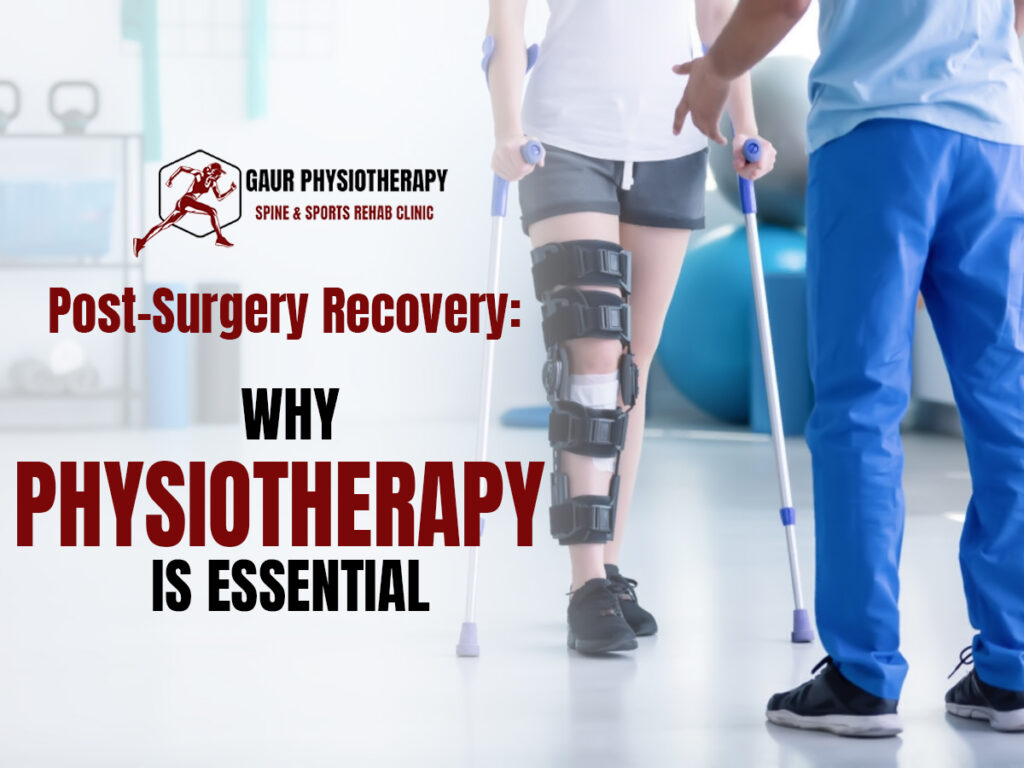Recovering from surgery can be a challenging journey, but with the right support, you can regain your strength and return to your daily routine faster. One of the most effective tools for post-surgery recovery is physiotherapy. Here’s why it’s essential and how it can make a difference in your healing process.
Why Physiotherapy is Vital After Surgery
- Accelerates Healing
Physiotherapy helps to stimulate blood flow, reduce inflammation, and promote tissue repair. Techniques like gentle exercises and manual therapy ensure your body heals efficiently and safely. - Restores Mobility
After surgery, stiffness and limited movement are common. Physiotherapy includes specific stretches and exercises tailored to your condition, helping restore mobility and flexibility over time. - Reduces Pain
Therapists use techniques such as massage, ultrasound therapy, and electrical stimulation to alleviate post-surgery pain. These methods not only provide relief but also reduce dependency on painkillers. - Prevents Complications
Prolonged immobility can lead to complications like blood clots or muscle atrophy. Physiotherapy ensures you stay active within safe limits, minimizing such risks. - Improves Strength and Endurance
Rebuilding strength is a critical part of recovery. Physiotherapy incorporates resistance training and weight-bearing exercises to help regain muscle strength and overall endurance.
Types of Post-Surgery Physiotherapy
- Orthopedic Surgery Recovery: For knee replacements, hip surgeries, or fractures, targeted exercises help regain joint function and strength.
- Cardiac Rehabilitation: Gentle exercises improve heart health and overall fitness after cardiac procedures.
- Neurological Recovery: For surgeries related to the spine or brain, physiotherapy aids in restoring balance, coordination, and motor skills.
- Abdominal Surgery Recovery: Core-strengthening exercises help improve posture and reduce strain on healing tissues.
How Physiotherapy Works Post-Surgery
- Initial Assessment
A physiotherapist evaluates your condition, reviews surgical notes, and understands your recovery goals to design a personalized plan. - Customized Treatment Plan
Your sessions may include a mix of:- Gentle stretches and strengthening exercises
- Pain management techniques
- Guidance for improving posture and movement patterns
- Home Exercise Programs
In addition to clinic visits, therapists provide easy-to-follow routines to continue at home, ensuring progress without strain.
When to Start Physiotherapy?
You can typically begin physiotherapy shortly after surgery, depending on your doctor’s recommendations. Early intervention can improve recovery outcomes significantly. However, always consult your healthcare provider to ensure it’s safe to proceed.
Benefits of Staying Consistent
Consistency in physiotherapy can:
- Speed up recovery
- Reduce the risk of re-injury
- Boost confidence in performing daily activities
- Enhance overall quality of life
Final Thoughts
Post-surgery recovery is not just about rest; it’s about active rehabilitation. With the right physiotherapy plan, you can recover faster, regain mobility, and return to the activities you love.
If you or a loved one are undergoing surgery, consult a professional physiotherapist today and take the first step towards a healthier, stronger recovery.
Ready to Heal?
Explore expert physiotherapy services near you and make your recovery journey smoother and more effective.


